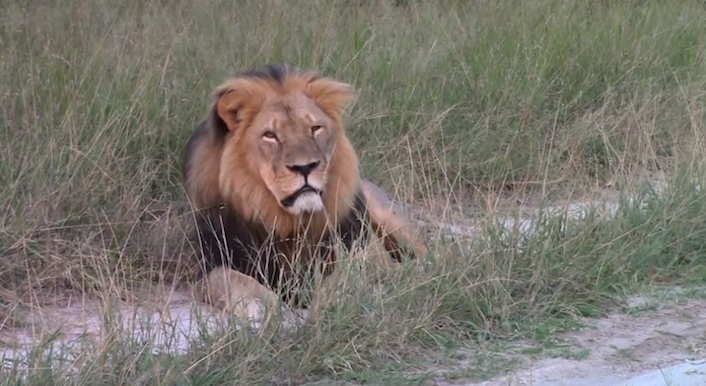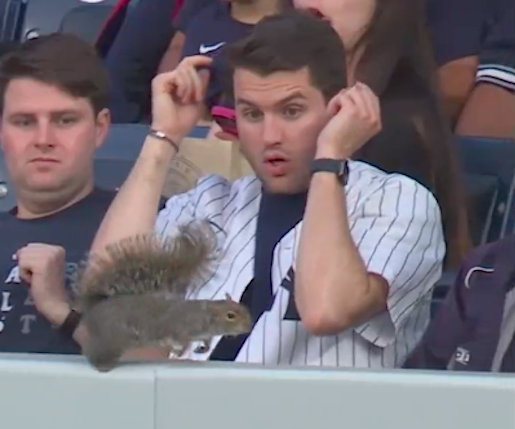Squirrels are thieves with no shame and new research has revealed they steal millions of dollars worth of food for birds.
It’s always been suspected the squirrels squirrel away food meant for birds, but new video evidence has documented exactly how much they’ve taken. The bird feeders are put out by nature lovers hoping to help wild birds survive. Instead, to the dismay of bird lovers, it turns out the bird feeders are helping the non-native grey squirrels thrive.
Scientists at the University of Reading measured how often the grey squirrels compete with garden birds for nuts and seeds provided by the public. They found that, at the sites monitored, almost half of the time feeders were used, it was by squirrels rather than birds.
With 43% of UK households collectively spending over £210m per year on feeding birds*, the findings means that tens of millions of pounds is potentially being spent subsidising what is considered to be an invasive species, which can potentially harm birds.
Professor Mark Fellowes, School of Biological Sciences at the University of Reading, said:
Grey squirrels can polarise opinions. They are viewed as charismatic and cheeky, and loved by many, but at the same time they are the leading threat to our native red squirrels, can be a major pest in orchards and forestry, and they also raid bird nests.
By using uncaged feeders, much of the food we provide may be going to unintended recipients. It’s not only that birds lose out on a source of food, but we are supporting a species that can harm the ones we intend to help.”
Grey squirrels were introduced to England from America in the 19th century and spread rapidly through the country. There are now thought to be 2.5 million in Britain and they are officially classified as a problem invasive alien species not only due to their contribution to the displacement of Britain’s native red squirrels, – largely through competition for food and space and transmission of squirrelpox – but also because of the significant damage they inflict on hardwood forestry plantations.
There is also evidence that they can have an adverse impact on woodland nesting birds.
In the study, published in Landscape and Urban Planning, automated cameras were used to record more than 33,000 visits to bird feeders in suburban gardens in Reading by birds and squirrels.
This provided unprecedented insight into what happens to the food put out for birds in gardens. The researchers found that when a squirrel was on a feeder no birds would come near. In gardens where squirrels dominated, feeders in gardens were visited less often by birds even when squirrels were not present.
Lead researcher Dr Hugh Hanmer, now of the British Trust for Ornithology, said:
Squirrels don’t just simply push birds off feeders, those birds change their behaviour. We found that some species even change the timing of their visits when grey squirrels are common.” The team found that cages around feeders were effective in stopping squirrels from stealing food intended for birds.
Dr Becky Thomas, of Royal Holloway University of London, said:
The work shows that putting up caged feeders does work to an extent. In our study, cages around seed feeders reduced grey squirrel visits to almost none, and cages halved visits to peanut feeders. If you want to ensure that the food you put out goes to your garden birds, then this work shows that there are some simple solutions.”
Robert Middleditch, Chairman of SongBird Survival, said:
Previous research has highlighted the adverse impact grey squirrels can have on songbirds, through predation of their eggs and young and exclusion from garden bird feeders. What was not known was the likely scale of supplementary food being taken by squirrels, resulting in significant costs being borne by bird lovers who enjoy feeding song birds in their gardens. These findings greatly add to our understanding of the significant economic and environmental damage that non-native grey squirrels cause. The good news is that by using simple solutions we can help make sure that the food goes to our garden birds, and may even help us save money in the process.”
The researchers said providing food for wild birds is perhaps the most widespread intentional interaction between people and wildlife. In the UK, almost half of households feed wild birds, often as peanuts and seed supplied in hanging feeders.
Feeders where Grey Squirrels were dominant were less likely to be visited by birds, even in their absence. Guards reduced Grey Squirrel use to a minimum on seed feeders, and by approximately
h/t: Reading University




